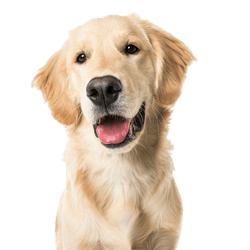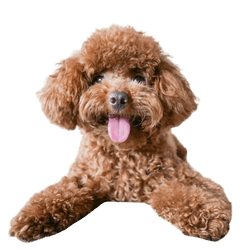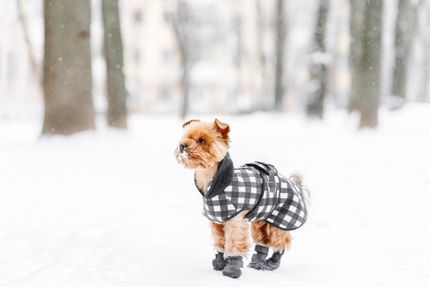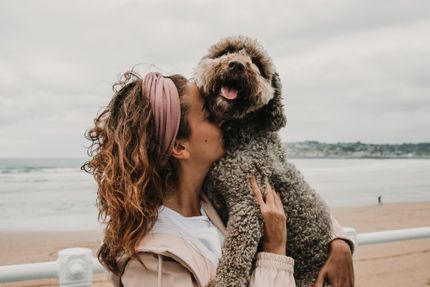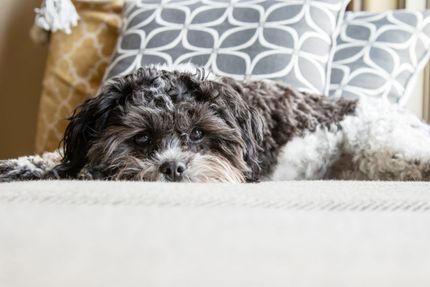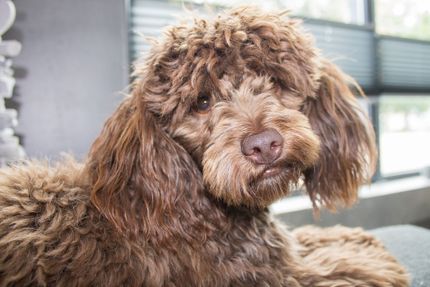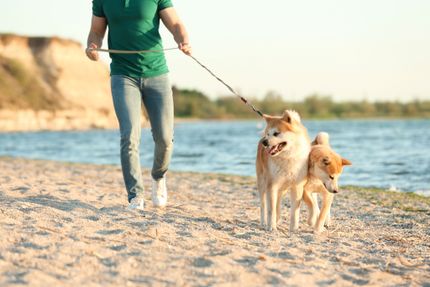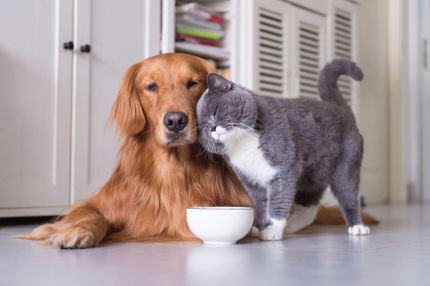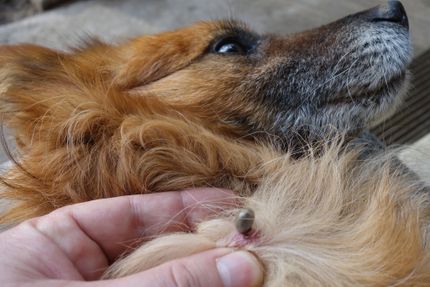Miniature Goldendoodle:Golden Retriever and Miniature Poodle Mix
Facts & Origin
Golden Retriever and Miniature Poodle mix - a hybrid breed
Looking for a puppy that combines the best of both worlds? Say hello to the golden retriever miniature poodle mix! This breed is known for being intelligent, friendly, and easy to train. They make great pets for the whole family and will put a smile on your face.
What are breed characteristics of this mix dog?
The Golden Retriever miniature poodle mix breed has a lean, muscular body with a beautiful golden coat. They weigh between 10-15 kg and have a shoulder height of 38-41 cm. They have a long, thick tail that is often carried in a curly shape. Their ears are long and floppy, and their eyes are large and brown.
| Alternate Name | - |
| Origin | UK - Germany |
| Life expectancy | 10 - 17 years |
| Care requirements | high-maintenance - low-maintenance |
| Activity level | average |
| FCI group | not recognised |
| AKC group | not recognised |
| KC group | not recognised |
More Golden Retriever mixes
More Miniature Poodle mixes
Attitude, character and temperament of the breed
Possible character traits of Golden Retriever and Miniature Poodle Mix - Such is probably his nature.
There are many different breeds of dogs in the world. Some are large, some are small, and some are in between. One of the most popular dog breeds is the Golden Retriever. Golden Retrievers are known for being loyal, friendly, and intelligent dogs. They also make great family pets. Another popular dog breed is the Miniature Poodle. Poodles are known to be hypoallergenic and have low chafing. They are also known to be very intelligent and easy to train.
So what happens when you mix a Golden Retriever with a Miniature Poodle? You get a beautiful and unique dog that combines the best of both worlds. These dogs are loyal and friendly like Golden Retrievers, but they are also hypoallergenic and shed little like Poodles. They are also very intelligent and easy to train.
Character
Usage


Health and breeding information
What diseases can occur in Golden Retriever and Miniature Poodle mix.
As the owner of a Golden Retriever-Dwarf Poodle mix, there are a number of health risks you need to be aware of. These range from common conditions like allergies and ear infections to more serious diseases like cancer and hip dysplasia.
Allergies are one of the most common problems in Golden Retrievers, and your Golden Retriever Miniature Poodle mix will likely inherit this tendency. Signs of allergies include itching, redness, hair loss, and hot spots.
Ear infections are also common in Golden Retrievers due to their long floppy ears.
Cancer is unfortunately a risk for all dogs, and Golden Retrievers are no exception. The good news is that there are many types of cancer that can be successfully treated if caught early.
Hip dysplasia is a condition that affects the hips. If you have a Golden Retriever-Dwarf Poodle mix, you should be aware of this. It is important that you have your dog examined by a veterinarian if you notice any signs of lameness or stiffness in his legs.
While there are a number of health conditions to watch out for, most dogs are healthy and happy. So enjoy your Golden Retriever-Dwarf Poodle mix, and see the vet regularly for checkups.
What does this mixed breed look like?
The Golden Retriever-Dwarf Poodle mix breed typically has a dense, soft coat that is a golden color. The coat may have some color variations, such as white or cream, but is usually golden overall. The Miniature Poodle parent may carry genes for a crimped or wavy coat, which can add to the uniqueness of this mixed breed's appearance.
| Fur length | medium |
| Fur | wavy - curly |
| Ear shape | Triangle - Floppy Ear |
| Tail | fanned out - lang |
| Anatomy | strong, dainty |
| Size ♀ | 28 - 56 cm |
| Weight ♀ | 3 - 32 kg |
| Size ♂ | 28 - 61 cm |
| Weight ♂ | 3 - 34 kg |
| Suitable For | Beginner, Blind people, Children, Seniors, suitable for allergy sufferers, Beginner, Children, Seniors |
Known Diseases
Elbow dysplasia (ED)
Elbow joint dysplasia is a chronic disease complex of the elbow joint of fast growing dog breeds.
Epilepsy
Definition: Dog has epilepsy if, for example, at least two epileptic seizures occur more than 24 hours apart.
Hip dysplasia (HD)
The hip dysplasia or hip joint dysplasia of the dog (HD) is a maldevelopment of the hip joint.
Cataract
Cataracts are still one of the most common causes of blindness, even in dogs.
Progressive Retinal Atrophy (PRA)
Progressive retinal atrophy (PRA) is a slowly progressive death of the retina in dogs.
Eye diseases
Often occur with allergies and intolerances.
Patellar luxation
Patellar luxation is the term used to describe a displacement of the kneecap, which is one of the most common causes of lameness in dogs.
Ureteral ectopy
Ureteral ectopy (also known as ureteral ectopia) is an inherited condition where the ureter (known as the ureter) does not end in the bladder as usual due to a misalignment.
FAQ
-
Yes, a Golden Retriever and Miniature Poodle mix can be left alone for short periods of time. However, they need plenty of exercise and stimulation when left alone so they do not become bored or destructive.
-
No, Golden Retriever and Miniature Poodle mixes are not prone to excessive barking. However, like all dogs, they may bark when they are excited, nervous, or want to attract attention.
-
A Golden Retriever miniature poodle mix needs a moderate amount of exercise. They should be walked daily and have plenty of opportunity to play and romp in a safe, fenced area.
-
Yes, Golden Retriever and Miniature Poodle mixes are usually good with children. They are known to be patient, gentle and loving, which makes them great family dogs.
-
Yes, Golden Retriever and Miniature Poodle mixes do shed. However, they shed less than purebred Golden Retrievers and Miniature Poodles.
Useful Articles
You can find articles that might interest you in the dogbible blog to match your favorite breed.
Visit our magazineto stay up to date on dog trends.
To find out more, view our Privacy Policy
Find here the breed that suits you and find out what character traits it has. Here you can also learn more about the origin, size and weight of your favorite breeds.
Matching your favorite breed, you'll find articles that might interest you on the dogbible dog blog.
Skiing with a dog - unforgettable moments in the snow
Tick Spot on Protection for Dogs: Frontline - is it good?
Eye inflammation in dogs - eye diseases and their causes
